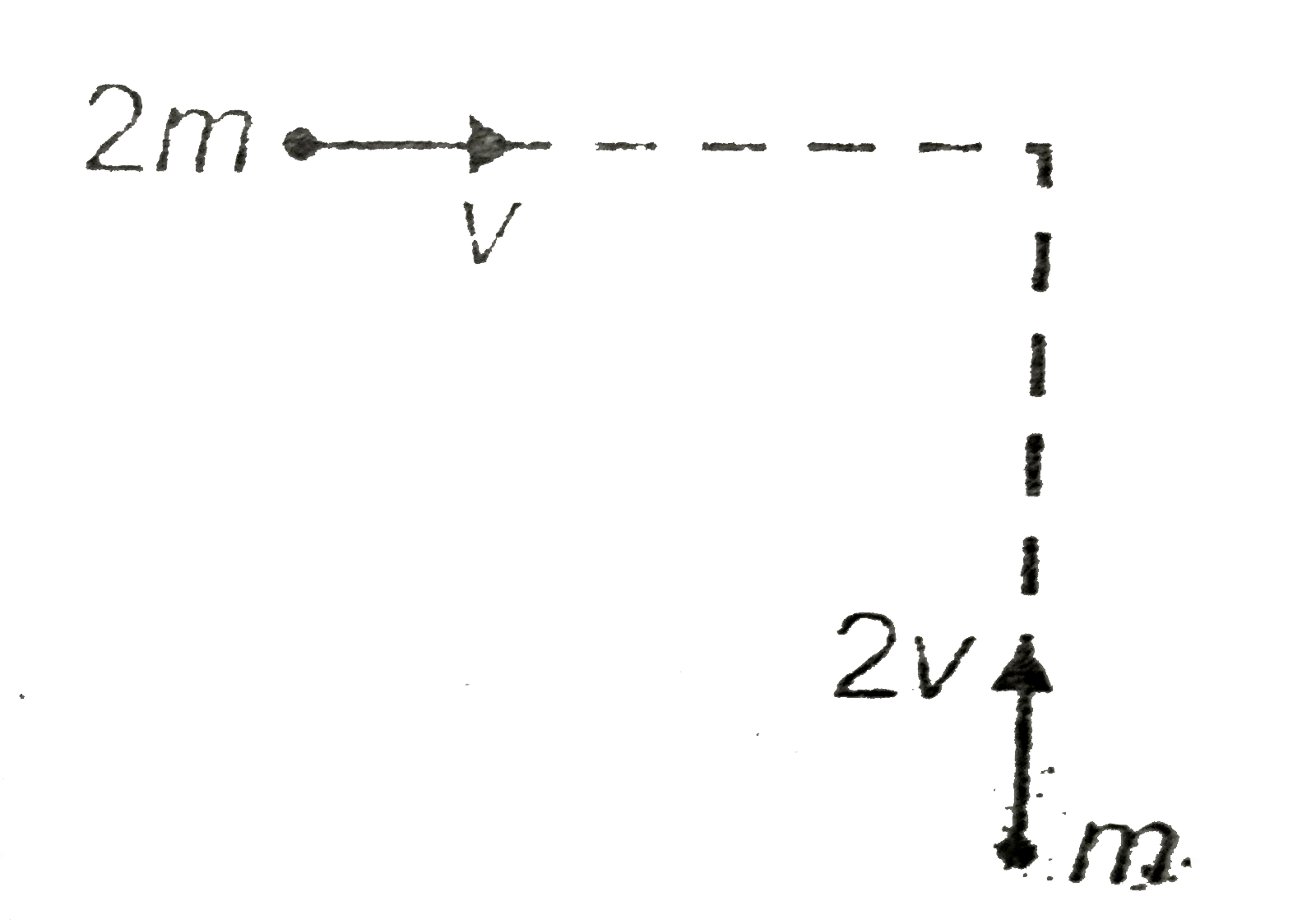Two objects, one of mass 3 kg and moving with speed of 2 m/s and the other of mass 5 kg and speed 2 m/s, move toward each other and collide head-on. If the collision is perfectly inelastic, find the speed of the object after the collision.
0.25m/s
0.5m/s
0.75m/s
1m/s
The correct Answer is:B
By definition of perfectly inelastic, the object move off together with one common velocity, v', after the collision. By conservation of linear momentum.
m1v1+m2v2=(m1+m2)v'
v'=m1v1+m2v2m1+m2
=(3kg)(2m/s)+(5kg)(−2m/s)3kg+5kg
=−0.5m/s.
Topper's Solved these Questions
Similar Questions
An object of mass 40kg and having velocity 4m/s collides with another object of mass 60kg having velocity 2m/s . The loss of energy when the collision is perfectly inelastic is
View SolutionTwo balls roll toward each other. The red ball has a mass of 0.5 kg and a speed of 4m/s just before impact. The green ball has a mass of 0.3 kg and a speed of 2 m/s. if the collision is perfectly inelastic, determine the velocity of the composite object after the collision.
View Solution
Knowledge Check
An object of mass 40kg and having velocity 4m/s collides with another object of mass 60kg having velocity 2m/s . The loss of energy when the collision is perfectly inelastic is
A392JB440JC48JD110JA ball of mass 5 kg moving with speed 8 m/s collides head on with another stationary ball of mass 15 kg. If collision is perfectly inelastic, then loss in kinetic energ is
A160 JB80 JC40 JD120 JA ball of mass 5 kg moving with speed 8 m/s collides head on with another stationary ball of mass 15 kg. If collision is perfecty inelastic, then loss in kinetic energy is
A160 JB80 JC40 JD120 J
Two particles of mass 2m and m moving with speed v and 2v respectively pependicular to each other collides perfectly inelastically, then

Speed of the particles after collision
View SolutionTwo particles of mass 2m and m moving with speed v and 2v respectively pependicular to each other collides perfectly inelastically, then

Speed of the particles after collision
View SolutionConsider on object of mass m moving with velocity v0 and all other masses at rest initially. Find the % loss in energy after final collision. If all collision are perfectly inelastic.

View SolutionConsider on object of mass m moving with velocity v0 and all other masses at rest initially. Find the % loss in energy after final collision. If all collision are perfectly inelastic.

View SolutionA ball of mass 5 kg moving with speed 8 m/s collides head on with another stationary ball of mass 15 kg. If collision is perfectly inelastic, then loss in kinetic energ is
View Solution
